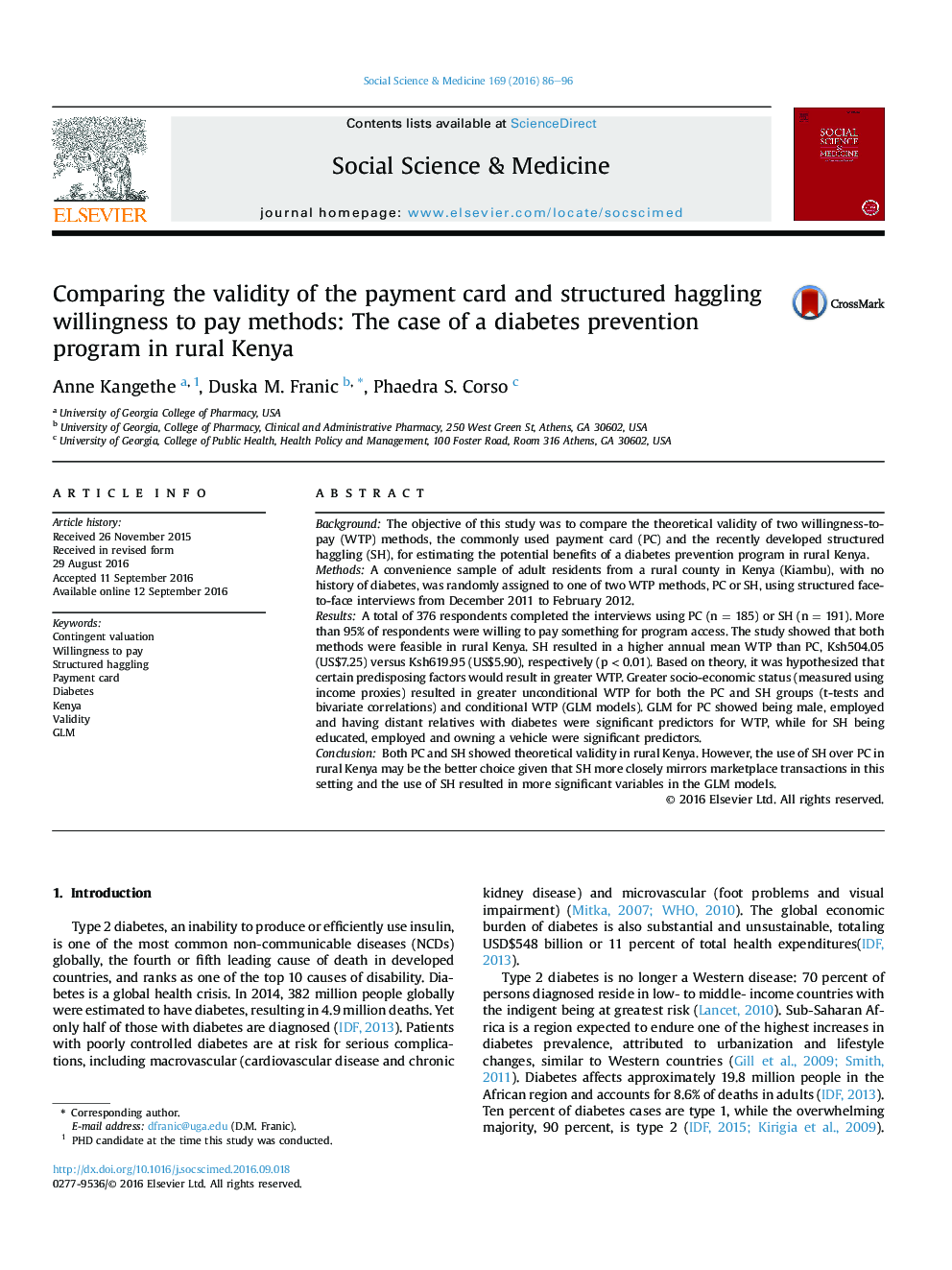| کد مقاله | کد نشریه | سال انتشار | مقاله انگلیسی | نسخه تمام متن |
|---|---|---|---|---|
| 5046893 | 1476000 | 2016 | 11 صفحه PDF | دانلود رایگان |
- Validity of the payment card (PC) and structured haggling (SH) are compared.
- Theoretical validity supported both PC and SH willingness to pay methods.
- SH showed greater validity over PC in rural Kenya.
- SH showed theoretical validity in rural LMICs including Nigeria and Kenya.
- SH has potential in rural settings, where culturally market place haggling takes place.
BackgroundThe objective of this study was to compare the theoretical validity of two willingness-to-pay (WTP) methods, the commonly used payment card (PC) and the recently developed structured haggling (SH), for estimating the potential benefits of a diabetes prevention program in rural Kenya.MethodsA convenience sample of adult residents from a rural county in Kenya (Kiambu), with no history of diabetes, was randomly assigned to one of two WTP methods, PC or SH, using structured face-to-face interviews from December 2011 to February 2012.ResultsA total of 376 respondents completed the interviews using PC (n = 185) or SH (n = 191). More than 95% of respondents were willing to pay something for program access. The study showed that both methods were feasible in rural Kenya. SH resulted in a higher annual mean WTP than PC, Ksh504.05 (US$7.25) versus Ksh619.95 (US$5.90), respectively (p < 0.01). Based on theory, it was hypothesized that certain predisposing factors would result in greater WTP. Greater socio-economic status (measured using income proxies) resulted in greater unconditional WTP for both the PC and SH groups (t-tests and bivariate correlations) and conditional WTP (GLM models). GLM for PC showed being male, employed and having distant relatives with diabetes were significant predictors for WTP, while for SH being educated, employed and owning a vehicle were significant predictors.ConclusionBoth PC and SH showed theoretical validity in rural Kenya. However, the use of SH over PC in rural Kenya may be the better choice given that SH more closely mirrors marketplace transactions in this setting and the use of SH resulted in more significant variables in the GLM models.
Journal: Social Science & Medicine - Volume 169, November 2016, Pages 86-96
